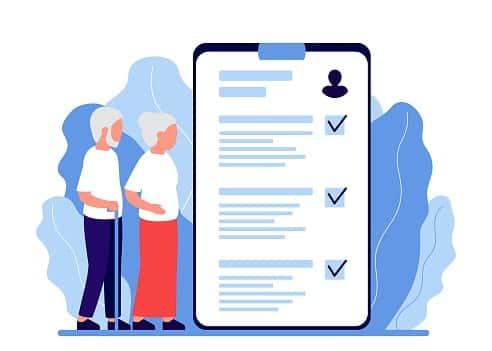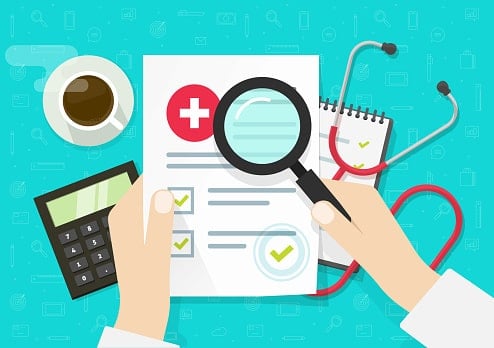How much is health insurance for young adults?
The cost of health insurance for young adults varies widely. Rates depend on:
- The terms of your health plan. Plans with higher out-of-pocket costs, like high deductible health insurance plans, have lower monthly costs, while plans with low deductibles and copays have lower costs.
- The plan type. PPOs, which offer a wider provider network, are more expensive than HMOs, which only cover in-network care. And there are other options, as well.
- Where you get your coverage. If you get health insurance through an employer, your rates will likely be lower than if you are buying coverage individually.
- Your income, if you buy an ACA plan. If you earn less than 400% of the federal poverty level, you can qualify for reduced costs.
- Where you live. Health insurance costs vary by state.
You can get an estimate for health insurance costs on an ACA plan through the Healthcare.gov website.
Health insurance options for college students and young adults
Here are seven options to get health coverage for young adults.
Stay on your parents’ or guardians' health insurance
Staying on a parent or guardian's health insurance is likely the lowest-cost method for young adults to get coverage.
The ACA lets children stay on their parents’ health plan until the age of 26. That's true even if you are at college, get married or move out. However, if you move far away, the plan may not have a provider network in your new area.
Pros:
- Cheapest way to get health insurance until age 26
- No need to apply or compare rates
- Covers you even if you move out or get married
Cons:
- You don't get to choose your plan or provider network, your parents do
- If you’re going to college or live out of state, the plan may not have providers in the area
Join an employer's plan
Employers remain the most common way Americans under retirement age get health insurance. You can sign up for a health plan with your employer when you’re first hired, during open enrollment or a special enrollment period. Employers have open enrollment periods each year when employees can change their health insurance and other benefits.
Special enrollment periods are when an employee experiences a qualifying event. These events include getting married and having a child. If you have a special enrollment-qualifying event, contact your employer to find out about health insurance options.
Pros:
- Cheaper than coverage on the open market
- Easy to get coverage, no applications
- Deducted from your paycheck automatically, pre-tax
Cons:
- Limitations on which plans are available
- Coverage can take up a significant portion of your salary if you’re just starting out and not making much money
Ask about a college health plan
Colleges also often provide health insurance. These plans may be of interest if you’re going to college outside of your state.
If you’re going to school away from home, check your health insurance’s provider network and see if local providers are part of the plan’s network. If not, you may want to sign up for a college plan while you’re in session.
If you’re going to school outside of the country, your parents’ health plan likely won’t cover you. In that case, you should look at the college plan or check out travel insurance.
Pros:
- Plans are usually inexpensive and offer a provider network for that area
- Simple application process
Cons:
- Limited selection of plan options
- College plan’s provider network likely doesn’t include doctors in your home area if your school is in another state
Individual health insurance and ACA plans
You can get individual health insurance through the ACA exchanges or directly from the insurer outside of the exchanges.
ACA plans are eligible for government subsidies that help reduce the costs of health insurance.
Your household income must be below 250% of the federal poverty level to qualify for subsidies. That’s about $32,000 for an individual for 2021. ACA plan members with household incomes below 400% of the federal poverty level can also qualify for tax credits to help pay for health insurance.
Pros:
- Comprehensive benefits and you may qualify for subsidies to help pay for an ACA plan
- Choose your preferred plan tier to balance premiums with out-of-pocket costs
- You can't be denied or charged more because of a pre-existing condition
Cons:
- Limited enrollment period
- Plans can be expensive if you don’t qualify for subsidies
Consider a catastrophic health plan
People under 30 are eligible for a catastrophic health plan. These plans have low premiums but exorbitant deductibles. You can buy a catastrophic plan through the ACA exchanges.
The deductible for a catastrophic plan is $9,200 for an individual. Other than preventative care and limited office visits, the plan doesn't cover anything until the deductible is met. After that, the plan pays all of the health care costs. You won’t have to pay a copay or coinsurance.
Catastrophic health plans cover the 10 essential health benefits found in ACA plans, including emergency, outpatient, labs, mental health and prescription drugs.
A catastrophic health plan can be a wise choice if you’re young, healthy, don’t take prescription drugs and don’t need more than an annual check-up.
Pros:
- Low premiums
- If you don't need much care, the money stays in your pocket
- All preventative visits are covered and everything is covered at 100% after the deductible
Cons:
- Limited availability
- High deductible
Find out if you qualify for Medicaid
Medicaid is a federal/state program that offers comprehensive coverage at free or low costs for those who qualify.
Thirty-eight states expanded Medicaid since the ACA, which opened up Medicaid to millions of more Americans. To qualify for Medicare, you must meet income requirements.
Medicaid offers the same comprehensive coverage found in Medicare and employer-sponsored health plans. And that comes at little to no cost if you qualify.
Pros:
- Plans are comprehensive
- They cost little to nothing depending on income if you qualify
Cons:
- Difficult to qualify
- Fewer providers accept Medicaid than employer-sponsored insurance and Medicare, so you may have trouble finding a provider in your area
Buy a short-term health plan
Short-term health plans are available in nearly all states. These low-cost plans aren’t technically health insurance since they don’t offer the health coverage found in insurance plans.
Short-term plans don’t usually provide mental health, prescription drug, pregnancy and other standard health insurance coverage. Short-term plans also have large out-of-pocket costs when you need care and can cap coverage.
Another potential barrier is that not all states allow the plans. California, Hawaii, Massachusetts, New Jersey and New York forbid short-term plans. Colorado, Delaware, the District of Columbia, Illinois, Maryland, New Mexico, Vermont and Washington limit its length.
Pros:
- Low premiums
- Gives you time to find a full policy
Cons:
- Not a long-term solution
- Limited coverage
- Substantial out-of-pocket costs
Having health insurance is critical -- even for those who are young and healthy. One health emergency can put you heavily into debt, which is the last thing you need if you have college loans. Plus, having coverage lets you get preventive care and receive the necessary health care you may need over the year. Don't go without insurance; shop around and find the right plan for your needs.
How to choose the best health coverage for students and young adults
Choose the best health insurance for your needs as a young adult by following this checklist:
- Check if you can stay on your parents' health insurance plan. If you're under 26, you can, and this should be your first choice.
- Compare your options. If a parent's plan is not an option for you, you'll need to compare the other options. Go through the list above and consider:
- How much you can afford to pay in monthly premiums
- Whether you can get insurance at work
- Whether you are willing to risk high out-of-pocket expenses for a lower monthly premium
- What subsidies might be available to you through the ACA
- Whether you are ok with a limited provider network or would rather have access to more providers
People ask
Do colleges offer health insurance?
Yes, many colleges have a health insurance plan available. It's usually low-cost, but may have limited coverage and a limited network.
Is health insurance worth it for young adults?
Yes. Everyone should have health insurance, even if you are young and healthy. Anyone can face a sudden illness or injury at any age. For example, you could face thousands of dollars in medical bills if you are injured in an accident.
Health insurance protects you from getting into medical debt, which you definitely don't want to do when you're young and just starting out.
FAQ: Health insurance for college students and young adults
Where can you get affordable health insurance?
The health insurance marketplace is the best place to find affordable health insurance; you may qualify for subsidies based on your income.
How long can you stay on your parents' insurance?
You can stay on your parents' insurance until age 26, although you may be able to extend coverage in some specific circumstances.




